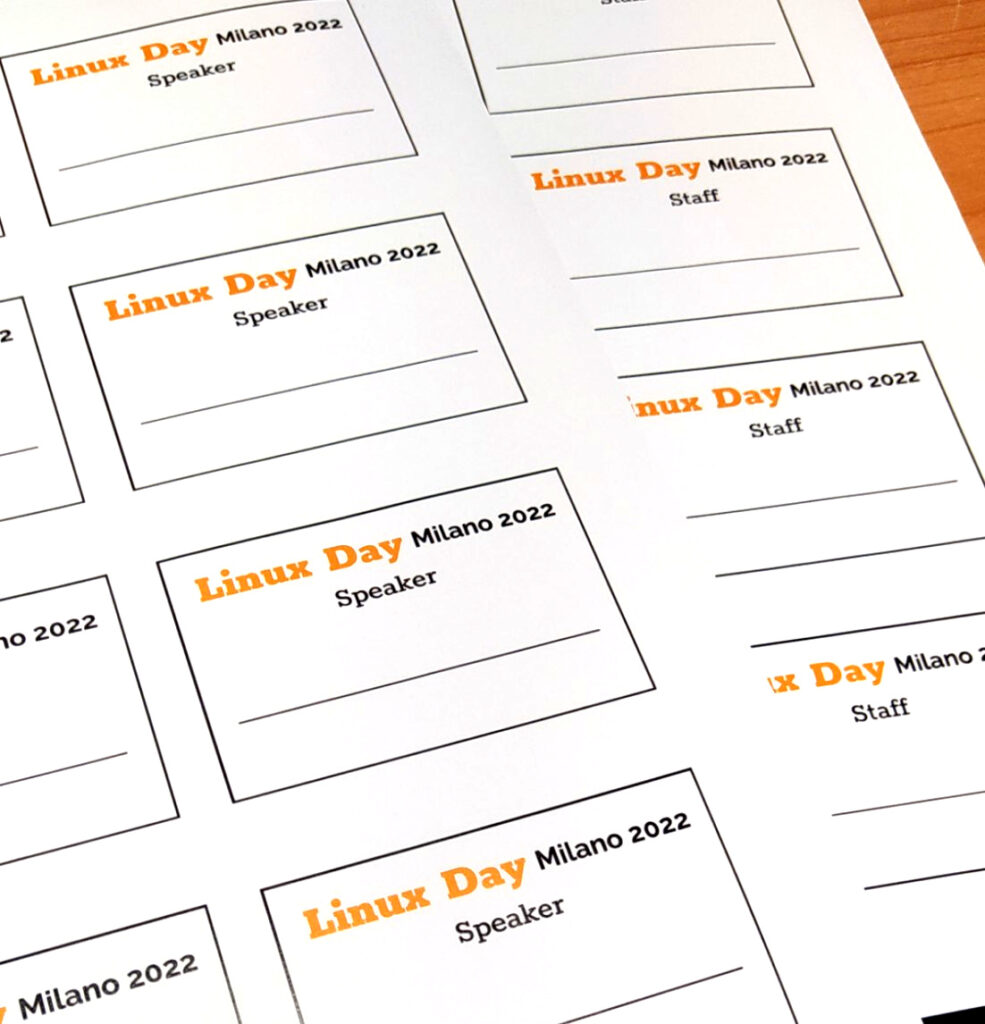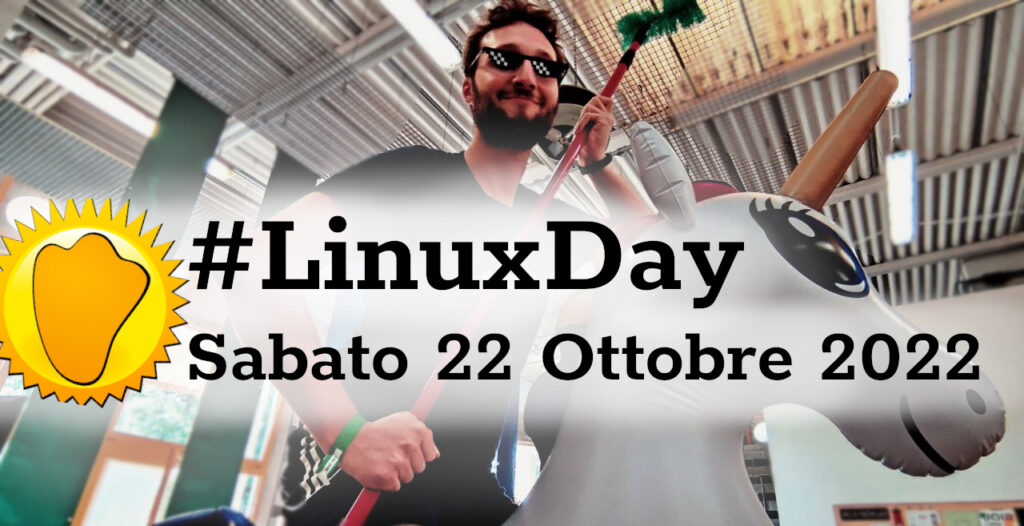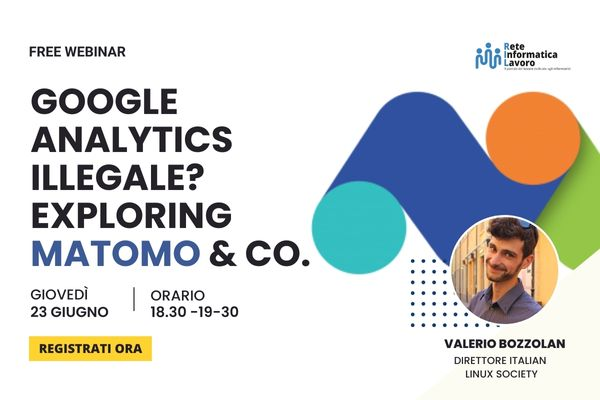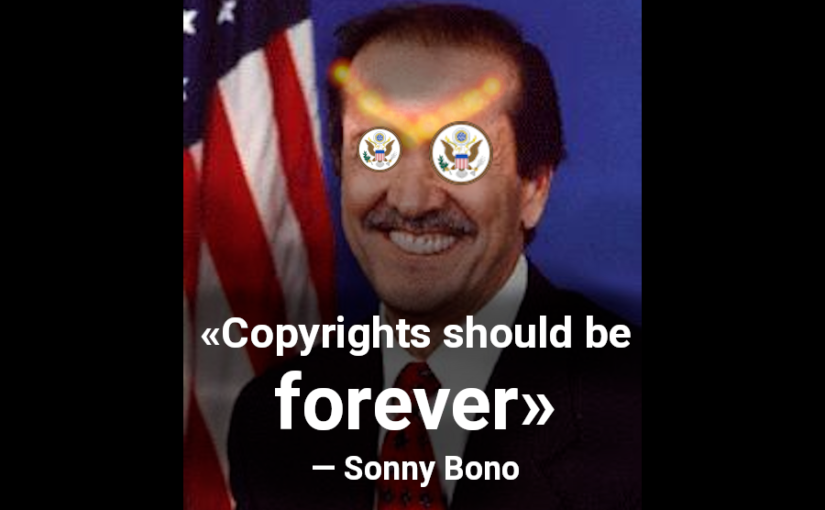Categoria: Software Libero
Un giorno al Linux Day
Due giorni al Linux Day
Tre giorni al Linux Day
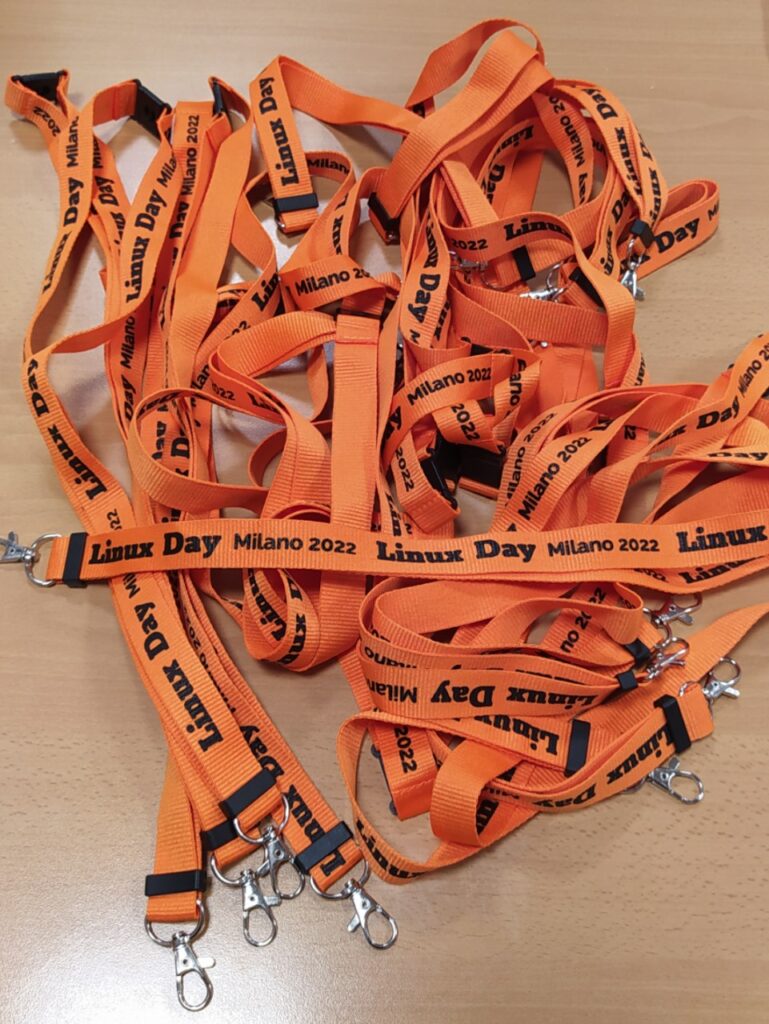
https://creativecommons.org/publicdomain/zero/1.0/
https://t.me/c/1090846088/92053
Geek Talk con boz: il Software Libero ama la privacy (Monitora PA, Linux Day)
Errata corrige
Al minuto 12:17 parlando di Monitora PA ho detto «abbiamo visto cosa ha fatto questa persona». In realtà ho semplificato ma chi ha mandato la mail a tutti i Linux user group italiani si chiama Giacomo Tesio, mentre chi ha spedito le 8254 PEC si chiama Fabio Pietrosanti. Comunque io non sono una scuola, quindi non posso verificarlo.
Al minuto 16:31 ho detto “adempìre”. Mi raccomando, non fatelo. Dite “adèmpiere” “adémpiere”.
Notare che Valerio continuava a dire “Bussoleno” mentre Stefano continuava a dire “Bussolengo”. Ci ha sorpreso scoprire che esistono entrambi questi comuni.
Webinar “Google Analytics illegale?” Affrontiamo la questione + Matomo
Ringrazio la Rete Informatica Lavoro che ha ospitato il webinar:
Negli ultimi mesi sono state messe in luce diverse criticità di Google Analytics, emerse all’interno di campagne di comunicazione lanciate da cittadini italiani. Queste campagne chiedono un serio adeguamento al GDPR, soprattutto da parte della pubblica amministrazione e dalle società che fanno servizi per la PA.
Obiettivi
- Comprensione delle “risorse di terze parti”
- Comprensione dei fattori di rischio di strumenti come Google Analytics sul GDPR
- Comprensione dei principali metadati raccoglibili attraverso il protocollo HTTP
- Comprensione dei cookie
- Cos’è il progetto Monitora PA
- Comprensione del concetto di 100% data ownership
- Esplorazione di soluzioni di data ownership come Matomo Analytics (software libero)
Il webinar è consigliato a:
- Agenzie di comunicazione sul web
- Digital Project Manager
- Web developer
Video PeerTube (45 minuti)
Video completo ufficiale (60 minuti)
Il video è stato rilasciato dal gentilissimo team di Rete Informatica Lavoro a questo indirizzo in licenza CC BY-SA (non è possibile sceglierla su YouTube ma è questa quella valida):
https://www.youtube.com/watch?v=iloqYJPiI0g
Download slide
- PDF:
Google-Analytics-Matomo-Valerio-Bozzolan.pdf - LibreOffice Impress:
Google-Analytics-Matomo-Valerio-Bozzolan.odp
Puoi usare questa presentazione per qualsiasi scopo (anche per scopi commerciali) a patto di citarmi da qualche parte e a patto di rilasciare le tue modifiche come libere. Credito consigliato:
Presentazione by Valerio Bozzolan in CC BY-SA 4.0
Allegati tecnici monitora PA
https://monitora-pa.it/2022/06/22/Allegato-Tecnico.pdf.
Sei una pubblica amministrazione? Migra a Web Analytics Italia
https://webanalytics.italia.it/
Questo strumento non l’ho inventato io, non sono un affiliato. È un servizio della pubblica amministrazione, per la pubblica amministrazione, ed esiste da anni. Qui tutte le domande frequenti:
https://webanalytics.italia.it/faq
Errata corrige
- Slide #2:
Ho detto che “nella vita reale sono uno sviluppatore”. Ovviamente anche il volontariato è la mia vita reale!
Ho anche detto che “mi piace contribuire”. Mi riferisco al piacere di contribuire ai contenuti. Chiunque può farlo, basta solo iniziare a farlo e dialogare con gli altri e cercare di comprendere le regole della community. - Slide sugli inizi del web:
Ho detto che una persona avrebbe digitato “https://”. Ovviamente avrebbe digitato “http://” (senza la S finale). - Ho detto un sacco di volte “mood della serata” e “mood del web” etc. quindi cercherò di non dirlo più per un paio d’anni. Scusate!
- Non ho detto che sono socio volontario di Wikimedia Italia. In realtà mi sono tesserato nello stesso giorno a InformAzioni.wiki e a Wikimedia Italia (però in Wikimedia Italia un’ora dopo, tiè! ihih)
Contatti in Wikimedia Italia:
https://wiki.wikimedia.it/wiki/Utente:Valerio_Bozzolan
- Domande finali: “Cosa ne pensi di Brave?”
Quando ho detto che Brave non è stato ancora accettato dalla community di Debian, significa che Brave non è un pacchetto Debian. Invece Firefox e Chromium sono pacchetti nativi del rilascio stabile di Debian[1][2] e, di conseguenza, disponibili su migliaia di distribuzioni GNU/Linux.
Non ho spiegato correttamente nel question time la “controversia Brave” che aveva scolvolto la sua community nel 2020. Eccola:
https://decrypt.co/31522/crypto-brave-browser-redirect
- Domande finali: “Supporto di Matomo nelle Conversions?”
Sarebbe interessante richiedere l’aiuto di una persona che conosca bene questa specifica domanda per sapere se questo copre le proprie necessità:
https://matomo.org/guide/reports/goals-and-conversions/
Personalmente io uso questo componente e mi trovo molto soddisfatto ma non so se ciò che faccio io è esattamente ciò che si aspettava chi ha posto la domanda.
- Domanda finale in privato: “Cosa ne pensi di questo software VPN?”
Una banale VPN per uso domestico non dovrebbe necessitare di alcun tipo di software proprietario per essere usata, quindi astenersi da installare roba da pubblicità in Internet senza prima verificare che quella VPN funzioni anche soltanto con software liberi ben testati e universalmente noti (come OpenVPN, WireGuard, etc.).
Quindi, un conto è voler cambiare il proprio indirizzo IP pubblico, un conto è rischiare di compromettere ancora di più il proprio dispositivo eseguendo potenziale malware o spyware.
Questo non era un webinar per parlare della navigazione individuale, ma nel quotidiano a parte Firefox o Chromium, suggerisco estensioni come uBlock Origin e impostando il proprio browser per eliminare i cookie all’uscita, aderire a DNT e rifiutare i cookie di terze parti, come minimo. Personalmente uso molto anche NoScript.
Detto ciò, ringrazio tutte le persone che lavorano a siti web e che ci aiutano a creare meno “mostri digitali”! :)
How to track a web radio with Icecast2 and Matomo?
«Copyrights should be forever»
Welcome in copyrights should be forever: your friendly handbook guide for pure evil authors.
Spoiler: copyrights do not last forever. But with this guide you can make them last a very looooong time. Muaauahahah!
Let’s start!
Rule n. 1: You have copyrights
It happened! Do you remember when? You incised a new artwork on your school desk; you whistled a new astonishing tune in the shower; you wrote that beautiful poem about your ex partner; you draw a rat with round ears; etc.
Whatever is the way, you joined the community of authors and this means you gained a new power: copyrights (©).
Note: this guide is designed to empower your pure evil copyrights and raise your new Disney monopoly. This guide will not accept any refunds for people who will use this power to help others instead, for example adopting Creative Commons licenses.
Warning: It’s OK to dream your copyright monopoly but if you get the urge to extend copyrights for 400 years to protect a business over a damn hand-drawn rat, please consult a good doctor.
Facts about copyrights:
- copyrights give you a monopoly by default
- even without writing “all rights reserved” in bold
- even without typing fancy characters like “©”
- copyrights last for years
- when they expire: public domain!
- It means end of your monopoly
This means that if you create something original, you have a monopoly by default. You can be the only one on your planet able to copy it, and the only one able to decide who should use it and when.
Note that while this is the world of the Internet, and it costs little to no money to copy paste and send a song to billions of people, you have incredibly powerful rights that can stop this spread very effectively.
Anyway, death is for everyone, and it will touch your copyrights too.
Rule n. 2: Copyright has a deadline
You can try to build antennas to amplify your copyright signal.
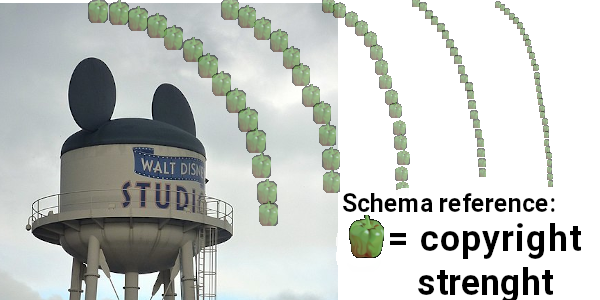
Anyway, even with powerful antennas, your copyright power does not last forever and after some years your work enters the public domain.
Under public domain, the game is over, my friend: your evil empire has vanished. Your work doesn’t belong to a master anymore, and anyone can make whatever other creative stuff with it (movies, T-shirts etc.) without any written authorization.
Important: in short, to keep your monopoly, you have to fight public domain or convert public domain into something that is not public domain.
So the first thing you should do, is: try to extend your evil copyright powers as long as possible. Yaah!
One of the evil things you can do to kill public domain and enlarge your empire, is transforming public domain, for example, doing “creative digitalization” (HAHA!) taking “original photos” (HAHA!) of something in public domain, or stuff like that. Trust me: people will become mad for this.
But you also need some friends to kill public domain.
Note this name: Sonny Bono and his wife.
Uh? Who? Sonny Bono was a nice songwriter and a great politician. As songwriter Sonny Bono wrote… uhm… surely something (OK now I don’t remember anything in particular). As politician, instead, he supported this great piece of paper we will remember forever:
The “Sonny Bono” Copyright Term Extension Act
In short, Sonny Bono tried to extend his copyrights and everyone-in-the-world’s copyrights with this law. I don’t know if this can be considered a conflict of interest but the important fact is that he reached this goal successfully in 1998! Good for our evil empire.
Extends the duration of copyright in a work created on or after January 1, 1978, to the life of the author and 70 (currently, 50) years after the author’s death. Makes the same extension with regard to joint works created on or after such date.
―https://www.congress.gov/bill/105th-congress/senate-bill/505
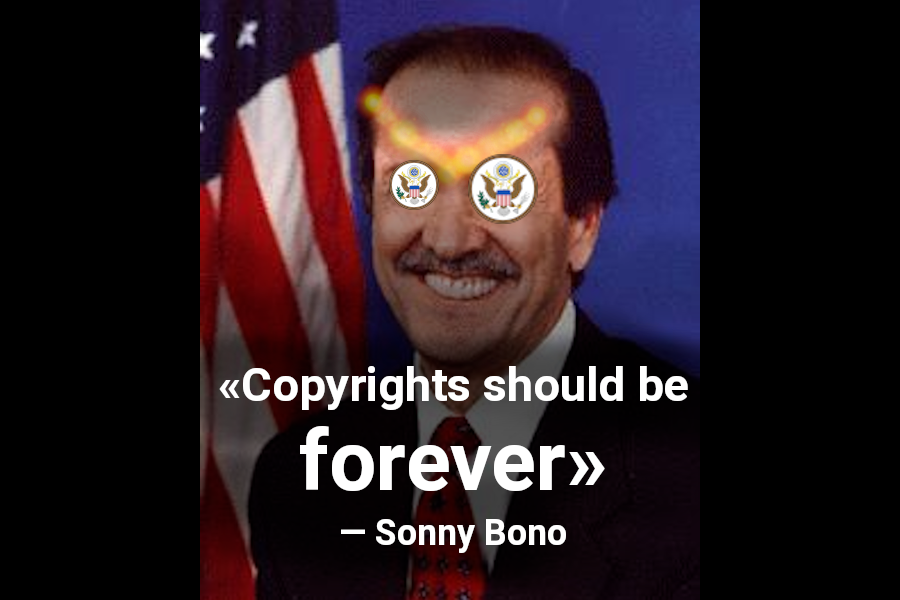
https://www.legalaffairs.org/issues/March-April-2004/story_lessig_marapr04.msp
This resulted in the historic lawsuits Eldred vs Ashcroft where some cute authors who had some cute business on public domain materials complained about a law that largely limited their room for maneuver, judging this law unconstitutional.
The lawyer “against Sonny Bono” was Lawrence Lessig. But I guess you already know this name. Lessig tried to fight with all his energy but, without our team of evil super-lawyers, Lessig lost.
Again, it’s a good news for your evil empire.
Rule n. 3: stronger copyright, stronger Creative Commons
Now you understand why in 2001 Lawrence Lessig helped in founding Creative Commons. Using copyright like a jujutsu, using the power of your enemy against it.
The core idea was similar to the one of the licenses written by Richard Stallman to protect Free Software: the copyright holder uses Creative Common licenses to give people more permissions over creative digital works, instead of denying all of them.
Note that, at the time, there was only the GNU Free Documentation License as an “attractive jujutsu license” for authors for creative contents. In short, the GNU FDL was just adopted for source code documentation and not for much more creative things (even if even Wikipedia adopted it for some time – so it wasn’t really such a lame license). That’s the moment when Creative Commons licenses were written and highly appreciated by creative authors.
When Creative Commons was founded in 2001, the internet was a budding universe with high potential, and platforms widely used today like Wikipedia and Google were only just getting started. CC’s founders were keen to hit the ground running, building on their work to ensure that, as the internet continued to grow, safeguards to knowledge, culture, and creativity were firmly in place.
― https://creativecommons.org/2021/05/24/were-turning-20-whats-happened-since-2001/
by Creative Commons · CC BY 4.0
But in short. What is Creative Commons?
- Creative Commons is a nonprofit organization
- they provide Creative Commons licenses and tools
- they support events and work with other organizations
- they offer certifications and other tools
- they work to help creative authors to share their work without relying on «all rights reserved» but «some rights reserved» instead
- Creative Commons is a set of licenses
- for example the “free cultural work” licenses:
- CC BY
- CC BY-SA
- CC 0 (special license – public domain)
- these license are adopted by Wikipedia, StackOverflow and lot of other platforms where collaboration should be encouraged and legally sustained
- for example the “free cultural work” licenses:
- Creative Commons is a movement very active also on the copyleft front, fighting the restrictive “default” copyright culture of «all rights reserved», providing valid alternatives. This movement is a network of global and local movements, from Europe, Japan and South Korea and much more, causing CC license proliferation.
Rule n. 4: Creative Commons are everywhere
Pay attention, monopoly builder: Creative Commons works are under every corner!
Do you know what? YouTube, that platform with billions of visits, allows creators to upload videos under CC BY license:
https://support.google.com/youtube/answer/2797468?hl=en
Flickr is even more designed for Creative Commons authors with powerful filters to fit your needs:
https://www.flickr.com/creativecommons/
About nerd stuff, StackOverflow receives 100 MILLIONS developers each month on their website, serving contents under CC BY-SA:
https://stackoverflow.com/help/licensing
Wikidata ha 95+ MILLIONS pages in public domain, thanks to CC 0:
https://www.wikidata.org/wiki/Wikidata:Main_Page
Wikipedia has millions of pages under CC BY-SA served to 45 BILLIONS visitors each month:
Lot of people joined communities to work together to kill your evil empire of «all rights reserved». For example, the CC Global Network is a community of members committed to spread Creative Commons in the world.
To join, you must choose two existing Individual Members to vouch for you:
https://network.creativecommons.org/
Rule n. 5: GLAMs, GLAMs everywhere
The Open GLAM project seeks to invite museums, cultural institutions, archives, libraries, and many others on how to better achieve their preservation and dissemination goals through digitization and Creative Commons licensing, especially thanks to archival projects like Wikimedia Commons.
Wikidata is another very interesting platform that is changing the world, allowing to store and search almost whatever metadata about any artwork in the world, and other things that proprietary archives often does not allow in such scale. That is very loved by GLAMs.
To do that, GLAMs have a real framework of licenses and case studies and other tools to amplify their impact on human beings, without relying on «all rights reserved».
See this simple GLAM launchpad:
https://outreach.wikimedia.org/wiki/GLAM
In short. If you want to make a monopoly, you don’t have to do anything, you’re already doing it. If instead you want to contribute to global knowledge, join Creative Commons and promote public domain (CC 0), CC BY, or copyleft (CC BY-SA) to spread “free as in freedom cultural works“. Or, at least, try other compromises such as the non-commercial or non-derivative versions.
Thank you for reading!
Note
This post is the result of the Creative Commons certification assignment.
I mean, I was not paid to write this post. I’m just doing my homework!
Credits
You can do whatever you want with the texts and the images in this page, as long as you give the rights credits and as long as you don’t put “all rights reserved” on this stuff.
- Post credits: Creative Commons BY-SA 2021 Valerio Bozzolan
- All image credits for the Sonny Bono copyright meme ← here
- All image credits for the Walt Disney Studios tower meme ← here
I’ve created these images with the Free Software GIMP, the GNU Image Manipulation Program.
Thank you for sharing! and copy-pasting! and editing! You can!
